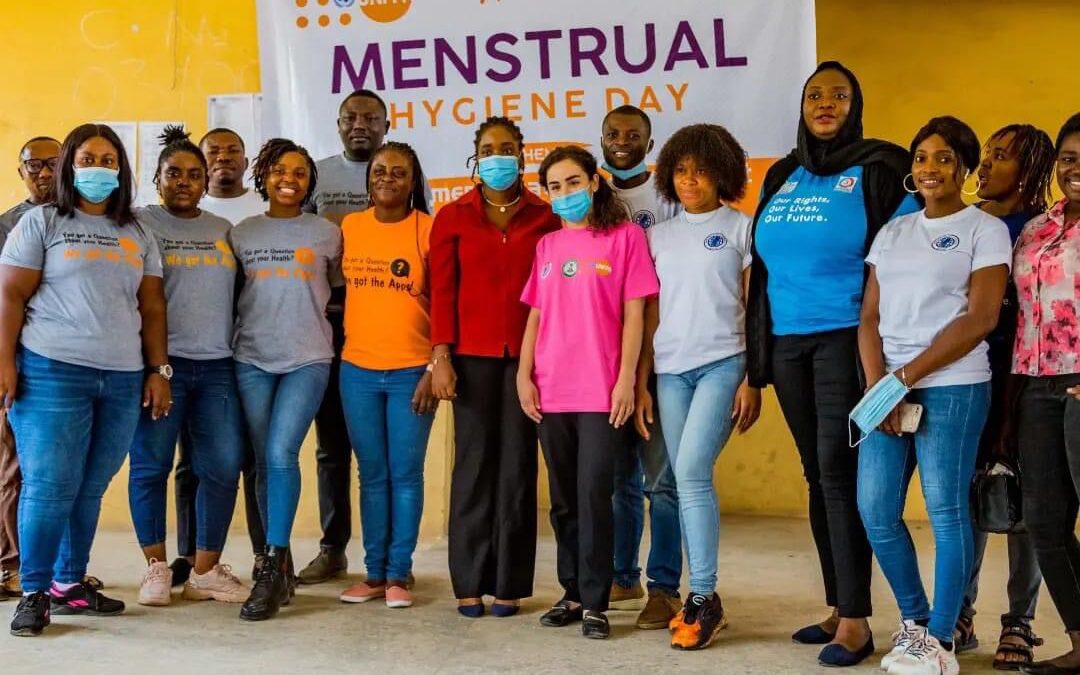About 26 per cent of the female population around the globe, are of reproductive age, available statistics have also revealed that 51 per cent of the female population in Nigeria are of reproductive age and are menstruating, yet as normal as it is, menstruation is stigmatised around the world, especially in low and medium-income countries in Africa.
According to the United Nations Children’s Fund (UNICEF) Joint Monitoring Programme (JMP), access to safe and dignified menstruation is a fundamental need for women and girls, a world where every girl can learn, play and care for her own health without experiencing stress, shame or unnecessary barriers to information or supplies during menstruation.
Most adolescent girls between the ages of 10 to 19 years entre puberty stage, which often comes with physiological and emotional changes.
Yet stigmatization, discrimination, violence against women and girls, girl-child education, inequality, rape and sexually transmitted infection, among others, are some of the social, economic and health challenges several adolescent girls and young women experience around the world, including in Nigeria.
Thus to break the silence, myths and taboos surrounding menstruation across the globe, the Anneozeng Ogozi Aid Foundation (AOAF), in partnership with Education As a Vaccine (EAAV), United Nations Population Fund (UNFPA) and Strong Enough Girls Empowerment Initiative (SEGEI), held a sensitisation program in commemoration of the Menstrual Hygiene Day for teenage female students in secondary schools in the Federal Capital Territory, Abuja, among which are Gwarinpa secondary school and Kado secondary school, with the aim of raising awareness on the need to end the stigma around menstruation, ensuring young women and girls have access to menstrual products, changing the negative social perception and making menstruation an everyday fact of life by 2030.

Menstruation is therefore a natural body process of releasing blood from the uterus through the vagina as part of the menstrual cycle during the reproductive age of females.
UNICEF/JMP also describes menstrual hygiene as women and adolescent girls, using a clean menstrual management material to absorb or collect menstrual blood that can be changed in privacy as often as necessary for the duration of a menstrual period.
Often times these adolescent girls are subjected to restrictions in their daily lives simply because they are menstruating; they sometimes have health problems associated with poor hygiene practices during menstruation.
In this case, affordability and accessibility of safe sanitary products, access to sanitary facilities to dispose of used menstrual materials, unavailability of soap and clean water to wash their bodies, and also understanding of basic facts of the menstrual cycle, how to manage it with dignity and without discomfort or fear, are some of the difficult situations young girls experience during menstruation.
Addressing issues of girls’ welfare, as regards empowering girls and providing free sanitary pads, is indeed a challenge, however, these and many more are experiences that sometimes keep girls out of school which eventually have a negative impact on their right to education.

These present realities, therefore propelled non-governmental international organisations such as AOAF, EAAV, UNFPA and SEGEI, to collaborate and reach out to young teenage girls in secondary schools, create awareness on menstrual health and hygiene management, support girls with free sanitary pads in order to break the stigma and silence that exists around menstruation thereby addressing the social, health and economic challenges that keep girls behind.
It is obvious that when girls are not in school, they do not have information, and are unable to negotiate for their rights.
When they are not in school, they are sometimes on the street hawking, which predisposes them to rape and sexual violence.
Most times with little or no information received from cultural beliefs, religious institutions, peers or families about menstruation, such information is often selective and surrounded by myths and misconceptions.
Some misconceptions, which are cultural, social and religious barriers that are often practised in some communities include:
Girls were not expected to go to school, because it was assumed that she was toxic and harmful to anybody who touches them.
Not bathing for the number of menstruation days, because it is believed that bathing could stop the flow which certainly serves as a barrier to personal hygiene.
While some believed disposing of their sanitary pads was wrong as ‘evil people’ could pick them up and use them as a charm against their fertility or ruin their lives.
Such misconceptions, however, increase their vulnerability to mental, emotional and physical challenges, which further impairs their daily activities, academic performance, school attendance and social relationships.
These misconceptions, stigma, silence, and menstrual hygiene among others, are challenges addressed by the AOA Foundation and partners in the sensitisation programme of female secondary school girls across the FCT.
This dire situation, however, demonstrates a need and a call on the government, non-governmental organisations, private organisations, and philanthropists to intervene by investing in the reproductive health needs of young women and adolescent girls.
This could be done by designing acceptable awareness and advocacy programmes, providing sanitary toilets with running water where they can conveniently clean themselves and change while ensuring sanitary pads are available in schools for emergency purposes in order to improve knowledge and promote safe menstrual hygiene practices.
